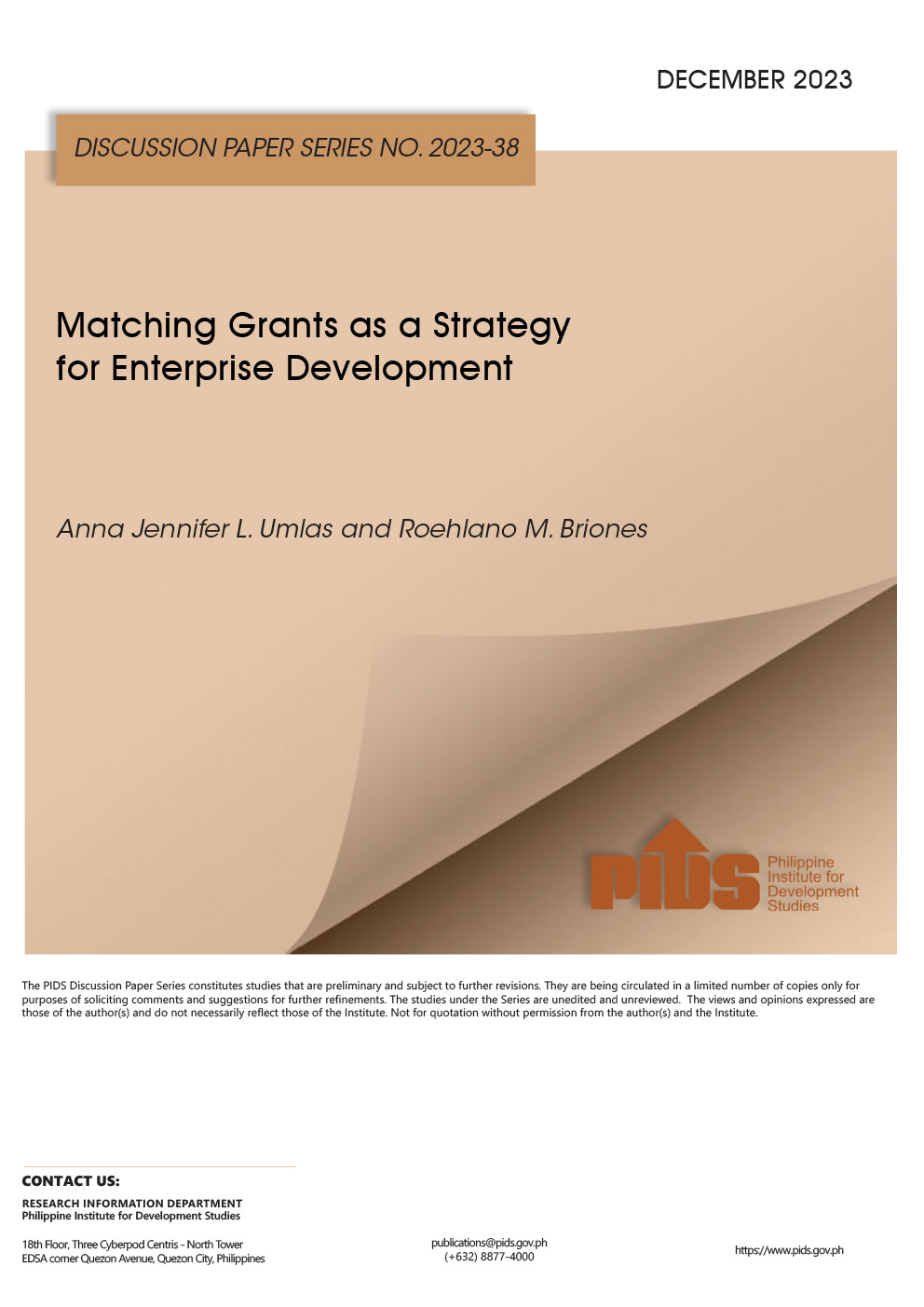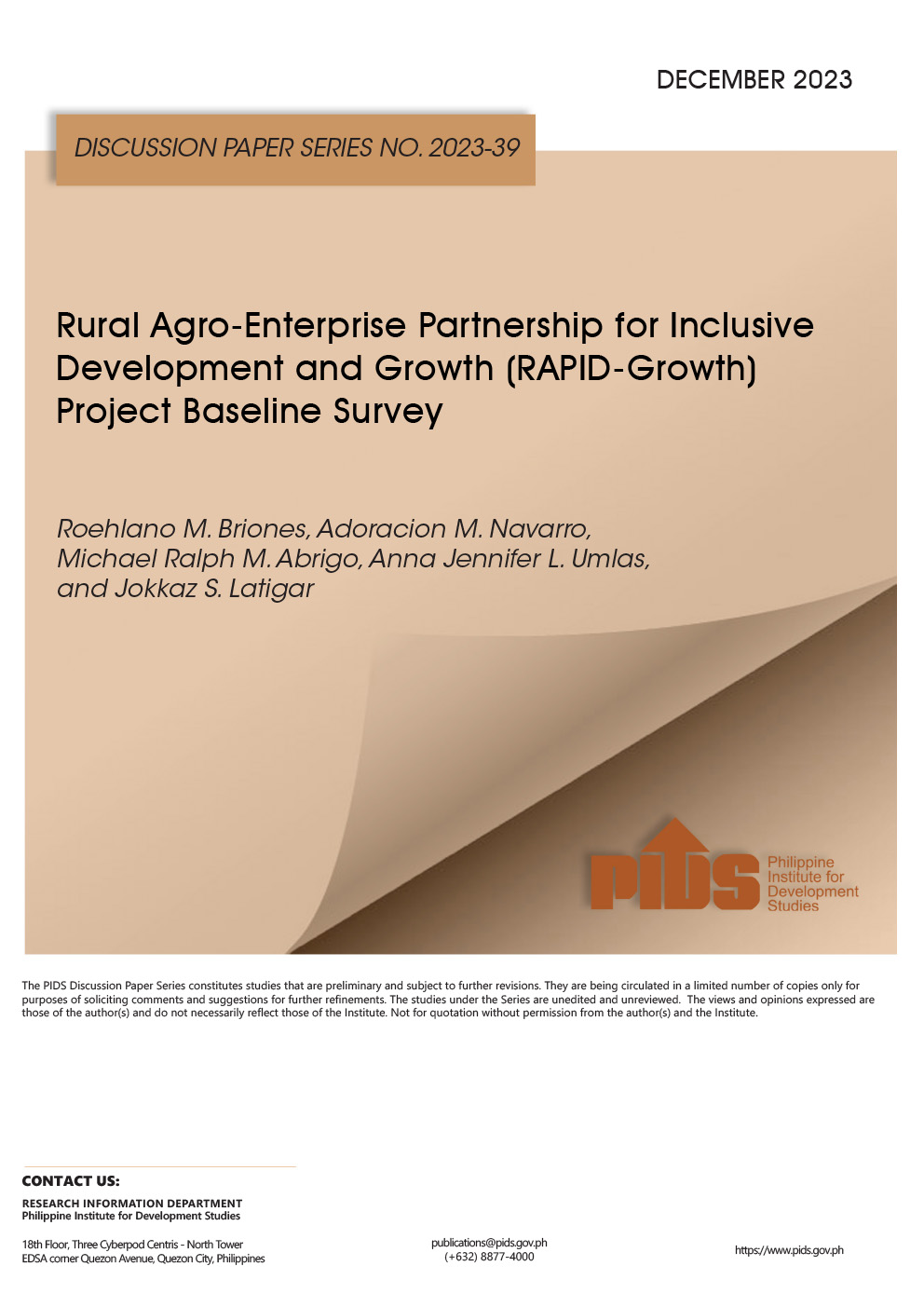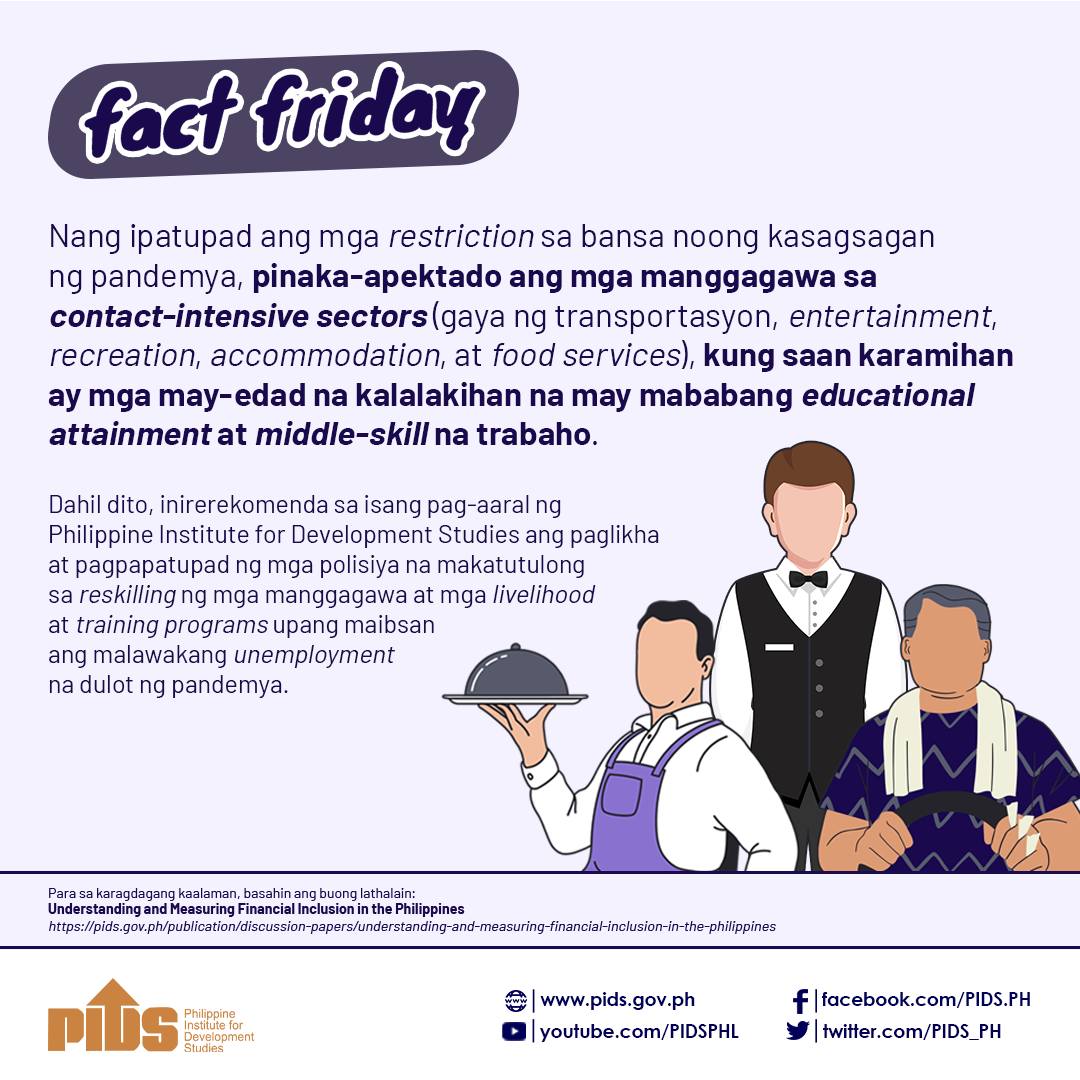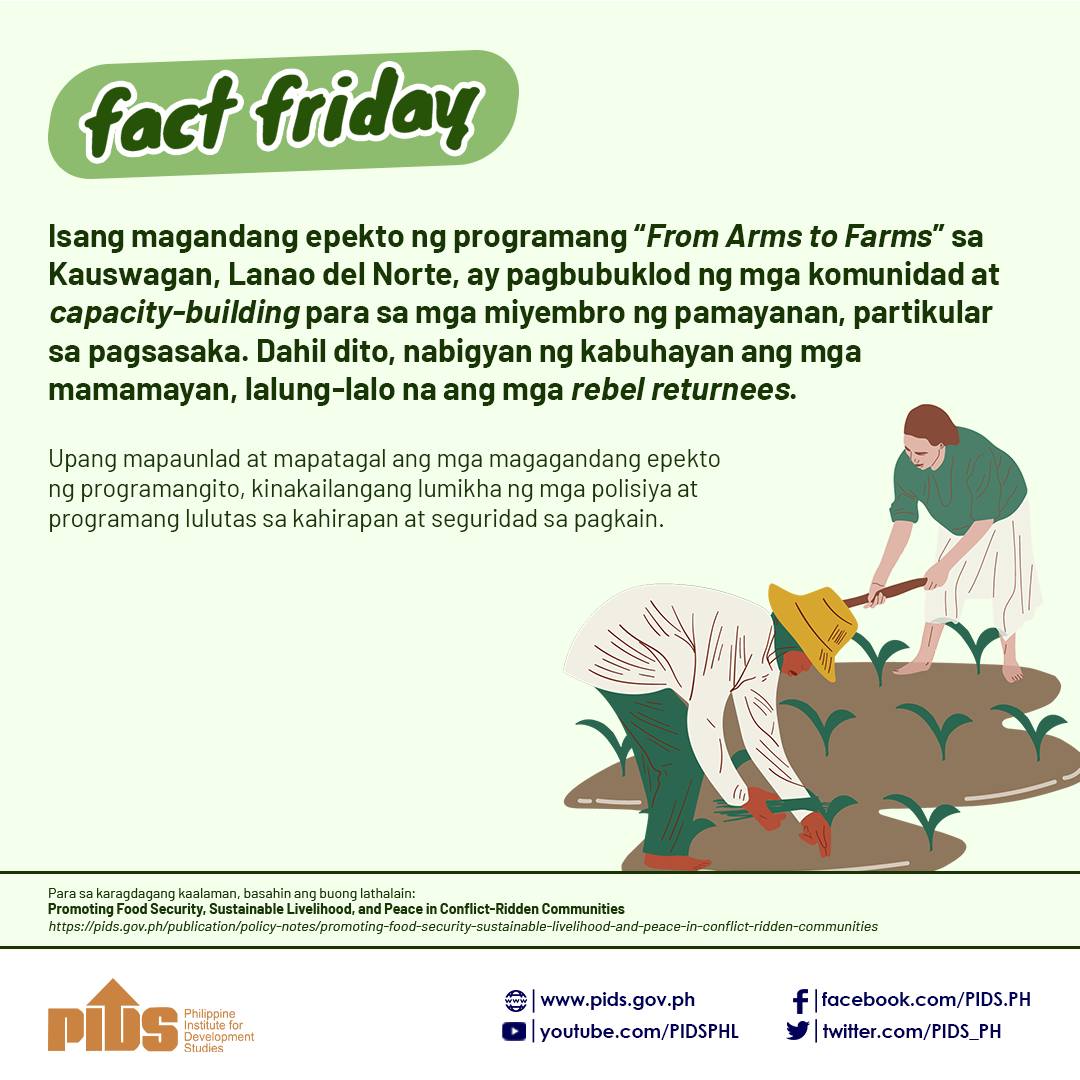THE government must focus on improving productivity, particularly identifying the right investments along the value chain, among others, to make food more affordable to Filipino consumers, according to a recent study published by the Philippine Institute for Development Studies (PIDS).
“Identifying the right investments and suitable actors along the value chain, to realize these productivity improvements, poses a real challenge to agro-industrial policy; however, the potential benefits are too large to ignore this particular approach to food policy,” Roehlano M. Briones said in his paper, titled “Food and Nutrient Intake Response to Food Prices and Government Programs: Implications for the Recent Economic Shocks,” published in December 2022.
The senior research fellow at PIDS said productivity improvement, beginning from farm production, and extending throughout the food value chain, has the potential of boosting competitiveness against cheap imports. He also noted that improving productivity comes with raising incomes of food producers, processors, and distributors.
“By lowering production and logistics cost, productivity improvements also tend to make food more affordable,” Briones stressed.
While the research paper acknowledged that the Bayanihan programs, social protection programs by during the Covid-19 pandemic, were an effective way to counter the “adverse nutrition impacts” of economic contraction brought about by the pandemic, Briones said these programs a “very expensive and are not sustainable.”
The study aimed to determine the significant role of Covid-19 social protection programs in preventing further deterioration in nutrient intakes and worsening of malnutrition. The research paper also noted that despite the rapid economic growth, the recent inflation episodes “pose a major threat to nutrient intakes and nutrition security.”
Also among the recommendations provided in the study was to “aggressively” pursue trade liberalization when nutrition security is under threat. Briones said this is a “cost-effective” policy to improve food affordability.
“The sooner the government dismantles high tariffs and overly strict [often arbitrary] application of sanitary and phytosanitary standards on these major consumer goods, the more affordable these items become especially to the poor,” Briones said.
The senior research fellow said the food groups that contribute most to the energy, protein, and micronutrient intake of Filipinos such as rice, other cereals, fish, meat, and poultry, are all produced under “high levels of trade protection” against cheaper imports. Briones said this will unfortunately result in reducing affordability of nutrient-rich foods.
According to Briones, a “common tendency” of policymakers is to favor price subsidies in order to keep food affordable. However, he noted that consumer subsidies are “financially unsustainable”; for instance, the “tantalizing promise” of P20 rice.
He said such could not in fact be delivered because of “high fiscal cost and the opportunities foregone from an expensive food subsidy scheme.”
According to a recent statement by Philippine Exporters Confederation Inc. (Philexport), Asean academicians who spoke at a recent e-forum on food security said Asean policymakers must strengthen the implementation of policies, regulations and pacts that promote food security especially after the Covid-19 pandemic exposed how “severely vulnerable” the food and agricultural sector is to global disruptions.
For the Philippines, Ramon Clarete, an economics professor at the University of the Philippines, highlighted that low productivity and high population growth have pressured the country to turn to food imports, including rice, making it vulnerable to international trade disruptions.











